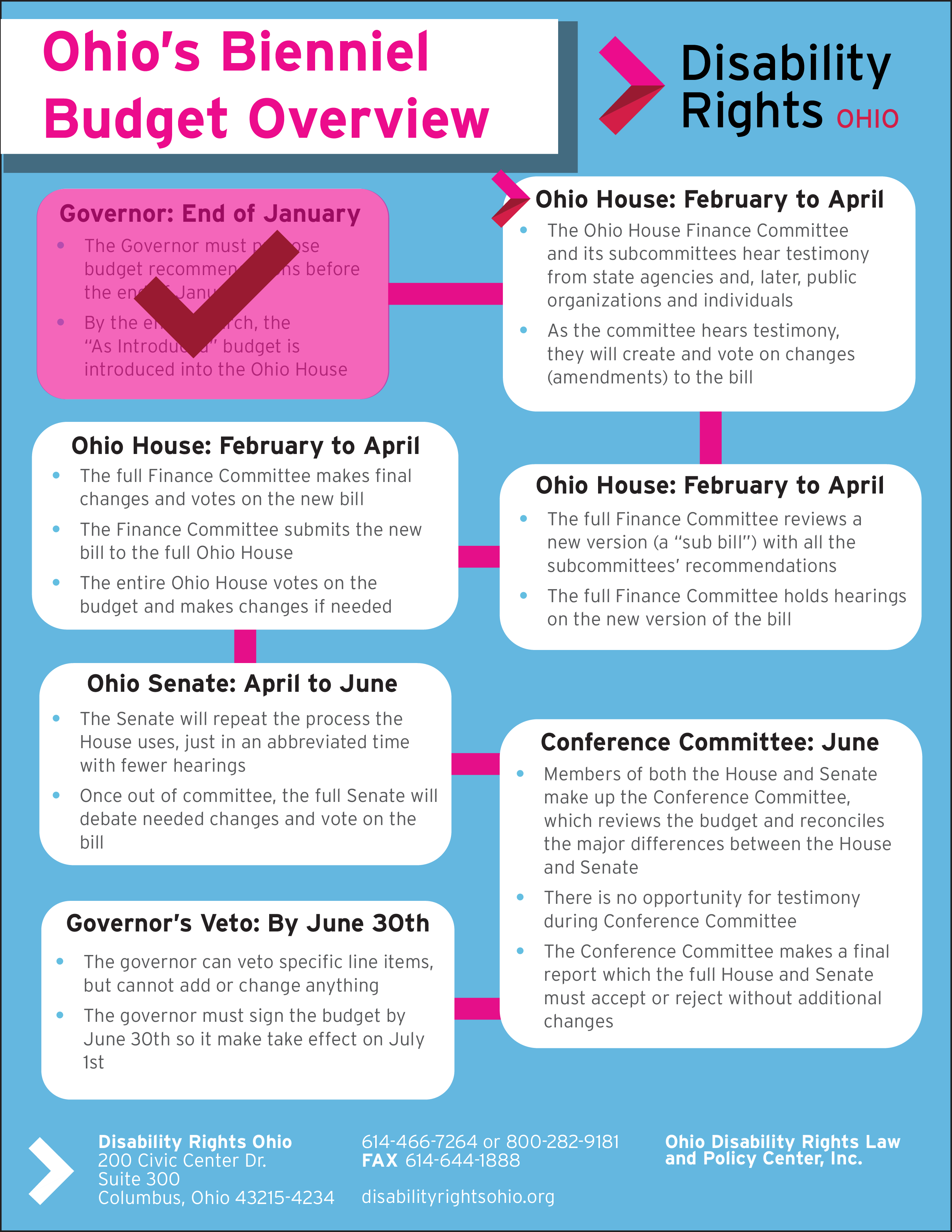#AdvocacyMatters: Empowering People, Accelerating Change
March 26, 2021 / #AdvocacyMatters
As part of Disability Rights Ohio’s mission to advocate for the human, legal, and civil rights of Ohioans with disabilities, our work this month has focused on Ohio’s biennial budget. So far, the budget has made its way through the House Finance Subcommittee on Health and Human Services and returned to the full Finance Committee. As we head towards April, the Finance committee will accept a substitute version of the bill—a bill featuring the approved amendments from previous committee hearings. If you’re keeping track with our budget timeline, we’re in the middle of the second bubble.
Download the PDF version here.

Advocacy in Action
This month, DRO submitted interested party testimony to the House Finance Committee, focusing on six core issues that impact Ohioans with disabilities. Additionally, DRO collaborated within the Ohio HCBS Coalition to submit testimony on provider issues—such as wage increases and pandemic assistance—while empowering organizations, providers, and advocates to submit their own testimony.
In the coming weeks, DRO will educate policymakers on the proposed amendment, which would provide a 5% increase each year of the budget to providers within the Home and Community Based Service system. If accepted, the proposal would increase funding for community nursing and aide services to address inequities in the HCBS system.
The proposed amendment is more than double the one-time, 4% increase introduced in the Governor’s Executive Budget, and it could significantly impact both providers and people with disabilities. In order for legislators to understand the magnitude of this proposal, it is essential for advocates and organizations to voice their opinions.
Advocacy Starts Here
Any Ohioan can be an advocate, and getting started is simple! First, get in contact with your legislators, and tell them how you feel about the budget or the 5% increase proposal. If you’re not sure who represents you, you can use the Ohio HCBS Coalition’s legislator lookup tool to identify your legislators and their contact information. Once you have your legislator’s contact information, you can advocate in several ways:
- Call— You can call your legislator’s office to speak with a legislative aide about an issue you care about. You can also leave a voicemail with a call-back number.
- Email—If you prefer, you can send your thoughts via email to your representative.
- Representatives’ emails are formatted like this: rep[district #]@ohiohouse.gov. For example, Representative Roemer serves Ohio’s 38th district, so his email is rep38@ohiohouse.gov.
- Senators’ emails are formatted like this: [lastname]@ohiosenate.gov. For example, Senator Bob Hackett’s email is hackett@ohiosenate.gov.
- Set Up A Meeting— Meetings are an effective way to share your story with your elected officials. Right now, many legislators are offering virtual meetings during the pandemic. To learn more about setting up a legislative meeting, visit the Ohio HCBS Coalition’s resource here.
Over the last month, DRO, our partners, and advocates have made great strides to show legislators how this budget could impact people with disabilities. As we move forward in the budget process, your advocacy will be crucial to ensuring long-lasting change. DRO will continue to engage, educate, and empower individuals with disabilities from across the state to make their voices heard. At DRO, we know your #AdvocacyMatters.
